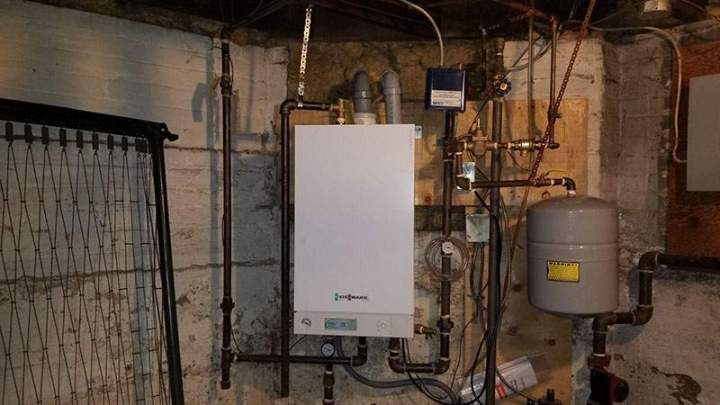How Do I Know If My Boiler Needs Repairing or Replacing?

Is your boiler acting up? Deciding whether to repair or replace can be tricky. L.B. Heating & Air Conditioning helps you understand the key signs and factors to consider for your home's heating system.
Recognizing the Warning Signs: When to Consider a Repair
Your boiler often gives subtle clues before a complete breakdown. Paying attention to these warning signs can help you determine if a repair is imminent. One of the most common indicators is unusual noises, such as banging, hissing, gurgling, or whistling. These sounds often point to issues like kettling (mineral buildup), a faulty pump, or air in the system, all of which require professional attention. Another significant sign is a sudden increase in your energy bills without a corresponding change in usage, suggesting that your boiler is working harder to produce heat, indicating a drop in efficiency.
Leaks, even small drips around the boiler or pipework, should never be ignored as they can lead to rust, corrosion, and significant water damage. If your home isn't heating evenly, or if your boiler is taking longer than usual to heat water, its performance is clearly declining. Inconsistent hot water supply or a flickering pilot light (for older models) are also red flags. While these issues can often be remedied with a targeted repair, it's crucial to have them diagnosed promptly by a qualified technician from L.B. Heating & Air Conditioning to prevent further damage and ensure safe operation.
The Replacement Equation: When Repair Costs Outweigh the Benefits
While many boiler issues can be repaired, there comes a point where replacing your boiler becomes the more economical and practical solution. The age of your boiler is a significant factor; most boilers have a lifespan of 10-15 years. If your unit is approaching or has exceeded this age, and you're experiencing frequent breakdowns, the cost of continuous repairs can quickly accumulate, making a new installation a better investment. Another key consideration is the "50 percent rule": if the cost of a repair is more than 50% of the cost of a new boiler, replacement is generally recommended.
Modern boilers are significantly more energy-efficient than older models, thanks to advancements like condensing technology. Replacing an old, inefficient boiler, even one that still "works," can lead to substantial long-term savings on your energy bills, often offsetting the initial investment. Furthermore, consistent breakdowns that leave you without heat during cooler periods, especially in the cold climate of Toronto, where even moderate cold can feel significant, might necessitate a more reliable, new system. L.B. Heating & Air Conditioning can provide a comprehensive assessment of your boiler's condition and help you weigh the pros and cons of repairing versus replacing, ensuring you make the best decision for your comfort and budget.